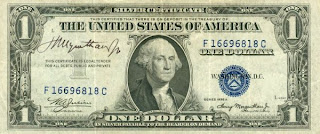 |
| Jack Benny, Mary Livingstone, and Eddie "Rochester" Anderson |
Eddie Anderson was more than a skilled comedian. In movies such as Cabin in the Sky and Brewster's Millions he was also an actor of some subtlety, and in the movie Buck Benny Rides Again (1940), an adept song-and-dance man. During the heyday of Jack Benny's radio program in the 1940s, the character of Rochester, played by Anderson, was so popular that Benny paid him $100,000 a year, making him the highest-paid African-American actor. The relationship between the characters they played on the air was complex, groundbreaking, and just a touch subversive: Benny the stingy boss, but boss in name only; Rochester, in the tradition of Beaumarchais' Figaro and Wodehouse's Jeeves, the butler-valet who's always one step ahead of him, manipulating him at will, feeding his vanity even while mocking it. The following exchange is typical and exemplifies the "radio joke," one that depends on a non-visual medium for its surprise and punch:
ROCHESTER: Look, boss, I pressed your blue suit. How does it look?
BENNY: Fine. Now take it off and get back to work.
During World War Two, the shows often emanated from military bases. I've listened to them. The receptions given Rochester, marked by boisterous cheers, were usually louder than those accorded other cast members, even big-name guest stars. I believe the buck privates, the grunts, identified with the character, rooting him on as he found new ways to circumvent the High Command.
Benny and Anderson remained close, professionally and personally. When Benny trademarked the character-name Rochester, he sold Anderson the trademark for one dollar. In time Benny and his writers eliminated all jokes involving racial stereotypes. After the war, Benny would often end his broadcast with a statement denouncing racial prejudice.
Anderson invested wisely and eventually became quite wealthy. He was entrepreneurial. During the war he owned a parachute company selling to the army and navy, managed a boxer, and in 1943 became the first-ever African-American owner of a racehorse, named Burnt Cork, to run in the Kentucky Derby. Unfortunately Burnt Cork finished dead last.
Anderson invested wisely and eventually became quite wealthy. He was entrepreneurial. During the war he owned a parachute company selling to the army and navy, managed a boxer, and in 1943 became the first-ever African-American owner of a racehorse, named Burnt Cork, to run in the Kentucky Derby. Unfortunately Burnt Cork finished dead last.
 |
| Eddie Anderson and Burnt Cork |
As they occasionally did, Benny's writers wrote the real-life incident into the script the next week. I've excerpted about seven minutes from the May 9, 1943 program, playable below. Rochester has been away for two weeks, having attended the Derby in Louisville. Now back in Los Angeles, he and surprise guest Louis Armstrong are preparing to go out on a double date while lamenting their losing bets on Burnt Cork. Armstrong always handled dialogue well, as he demonstrates in this exchange:
ARMSTRONG: What are we gonna do for money tonight?
ROCHESTER: Satch, you got money.
ARMSTRONG: I had money, until that horse of yours de-Morgenthau'ed me.
Time out while I explain the topical joke. Henry Morgenthau Jr. was Secretary of the Treasury at the time, for years a well-known public figure in FDR's New Deal. It was his signature adorning all your folding green.
The point is, that's a difficult punchline, but Pops aces it and gets a huge laugh.
My excerpt ends with Armstrong singing and playing Lazy River. Unlike obscure references to Henry Morgenthau Jr., the music needs no explanation from anyone, and never will.


Throw away your troubles, dreamer, and dream with me! Keep reminding us of the people who should not be forgotten, Kid!
ReplyDelete